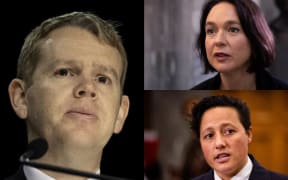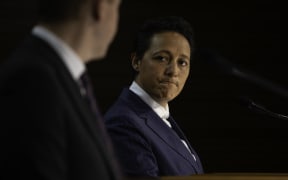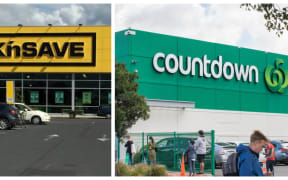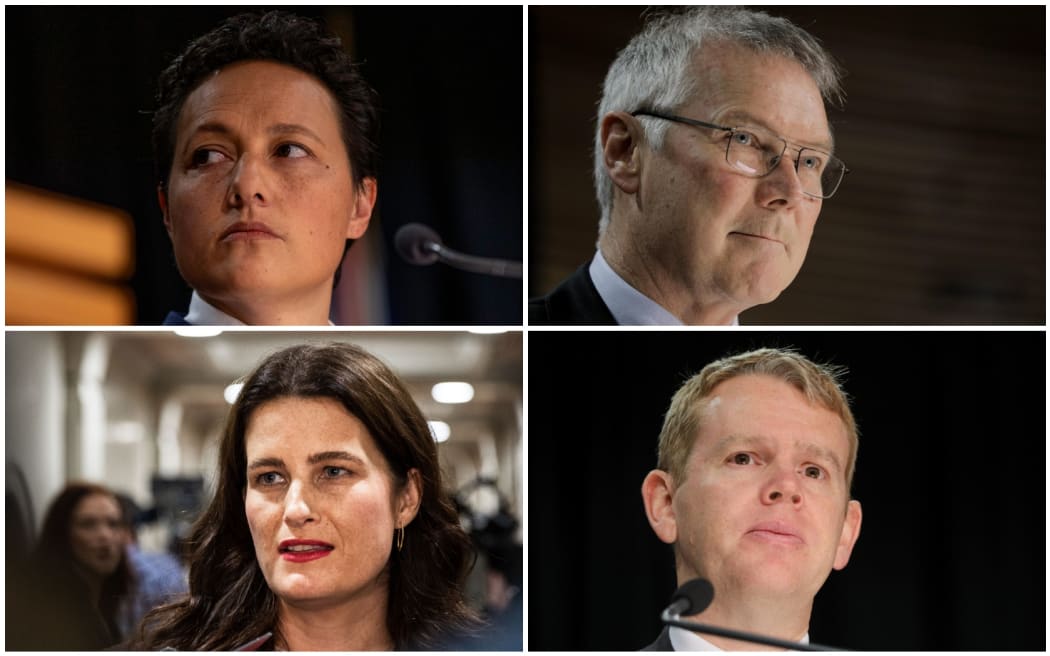
Politicians in the news this week: from top left, Kiri Allan, David Parker, Nicola Willis and Chris Hipkins. Photo: Angus Dreaver / Samuel Rillstone
Analysis - The political implications of Kiri Allan's downfall; David Parker gives up revenue - was there "a whiff of petulance" around his decision? National says Labour's tax policy includes removing GST from fruit and vegetables, and it isn't denied.
A justice minister being arrested is about as bad as it gets for a government going into an election but writing Labour off because of Kiri Allan's downfall could be premature.
The circumstances surrounding Allan's Sunday night car crash and her frank openness about her mental health problems are unique, there is an element of human tragedy in it that could soften voter attitudes to her career-ending catastrophe.
Newsroom's political editor Jo Moir considered the ways it could play out: "Some voters will have empathy for what has happened, some will see it solely as an Allan issue and not one the prime minister could have prevented," she said.
"For others it will be the final straw, and then there will be those who reserve their judgment and decide in October whether it's a deal breaker or not."
And Moir noted: "Any number of gaffes, stuff-ups or scandals could take place between now and when voting begins, and it's not just Labour at risk of that."
How right she is. Allan has left the scene, she is not standing for re-election, there has been exhaustive media coverage, the campaign proper has not started yet and core policies from the main parties are still unseen.
The mental health aspect of Allan's downfall meant media coverage was carefully written and there was empathy even in the bear pit of Parliament.
"MPs across the House have been in agreement that what occurred on Sunday was a tragic development for a minister that had spoken of struggling with mental health and difficult personal circumstances," Stuff reported.
"But the opposition has also been threading a political needle: showing empathy for Allan's difficulties while criticising the government for yet another ministerial loss."
National and ACT hammered the government this week, and with some justification - Labour really has been through an appalling period of ministerial mishaps.
The government, according to the opposition parties this week, was falling apart and unfit to rule.
Prime Minister Chris Hipkins was a weak leader, unable to create the right "culture" within his team, and so it went on.
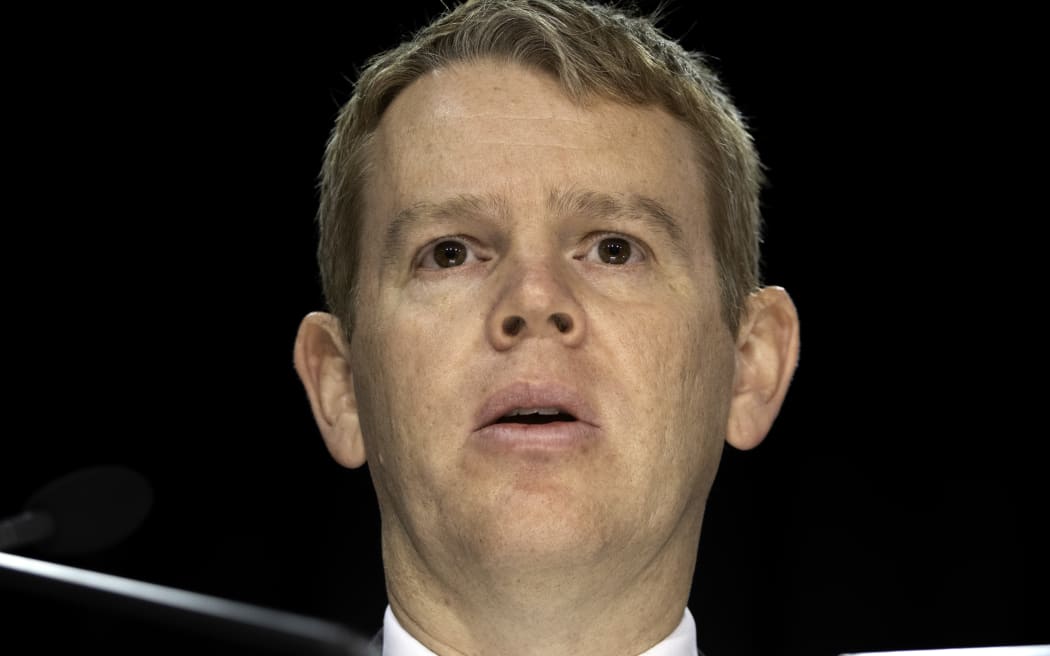
Prime Minister Chris Hipkins speaks about Kiri Allan's resignation as justice minister, July 24, 2023. Photo: RNZ / Angus Dreaver
Hipkins went through a difficult post-cabinet press conference on Monday, repeatedly questioned about whether he should have foreseen what happened to Allan the previous night and whether she had returned to work too soon from mental health leave.
He said he did not foresee it. He had spoken to Allan on Sunday morning about her work agenda and believed she was alright.
One of Allan's closest colleagues, Willie Jackson, spoke with her just hours before the car crash, RNZ reported.
That was about 6pm "before it all blew up" and he did not think it was necessary to send anyone to support her.
Hipkins spoke of how difficult it was to deal with mental illness, and so did the head of the Mental Health Foundation Shaun Robinson speaking on Checkpoint.
"I think anyone in a high-stress job who went through a relationship break-up would have a significant amount of mental stress and we should all have compassion for anybody that is in that situation," he said.
Allan confirmed at the end of last month that she and her partner Māni Dunlop had separated.
Robinson said it was not always true that being away from work was the best thing - "sometimes it's hard to judge if we are through the worst".
Hipkins said returning to the Beehive had been Allan's decision, and he was not going to compel her to stay away.
Without Allan's catastrophe, the big political story of the week would have been David Parker quitting the revenue portfolio.
This was done under the cover of the portfolio reallocations necessitated by Allan's resignation, announced by Hipkins on Monday.
The prime minister was unusually disingenuous about it, saying Parker had wanted a change and giving revenue to someone else would enable him to focus on transport - which came to him when another minister, Michael Wood, left the cabinet.
It did not work, and the next day Parker revealed why he had given up revenue.
It would have been untenable for him to continue after Hipkins canned the wealth tax, Parker said.
"You know my views on those things, I thought it was untenable for me to continue so I suggested to Chris that it was in the best interest of him and the party that someone else take that role," he told media.
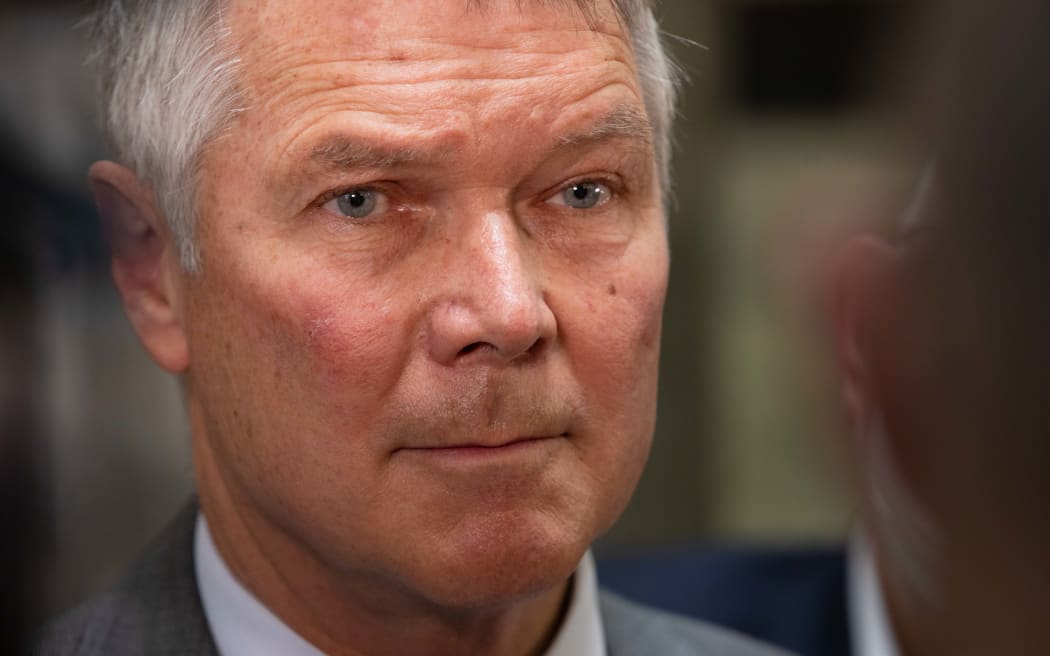
David Parker said it would have been untenable for him to continue with the revenue portfolio after Hipkins canned the wealth tax. Photo: RNZ / Angus Dreaver
The Herald's political editor, Claire Trevett, took a dim view of that.
"Minister David Parker has created quite a headache for Chris Hipkins by asking to be relieved of the revenue portfolio - an ill-timed bout of personal principle that carries a whiff of petulance and selfishness," she said.
"Hipkins was already dealing with enough trouble with the MPs cramming the cabinet exit door - last thing he needed was an arm wrestle with the ones remaining as well."
Trevett said there should be a time for a minister to stand on principle or opt to step out of a portfolio.
"However, 11 weeks before a general election is not that time - especially when your party is, quite frankly, looking very ragged."
Trevett thought Parker should have gritted his teeth and seen it through to the election.
It played right into National's hands, giving campaign manager Chris Bishop another opportunity to call Hipkins' team a "cabinet of chaos".
Parker, a very experienced politician, would have known the impact his decision was going to have, and went ahead anyway.
Trevett did have some sympathy for the minister, saying a capital gains tax and a wealth tax had been a long-held principle for Parker and he had been knocked back before.
"This time round he appears to have decided that he has swallowed enough dead rats for the sake of politics over principle and this was one dead rat too far."
Hipkins has given revenue to Barbara Edmonds, who was a tax lawyer before coming to Parliament.
She will be in charge of Labour's election tax policy, and with the release expected in a couple of weeks she doesn't have a lot of time to get her head round it.
GST off fruits and vegetables?
Before the week was over Hipkins had to confront another tax problem.
Nicola Willis, National's shadow finance minister, told reporters as she walked into Parliament on Thursday she had details of Labour's tax policy, RNZ reported.
She said she understood it included the removal of the 15 percent GST on fruit and vegetables.
"This is information that has come to me that I believe to be true," she said.
Asked how she knew about it, she replied: "There's quite a lot of leaks out of the government lately."
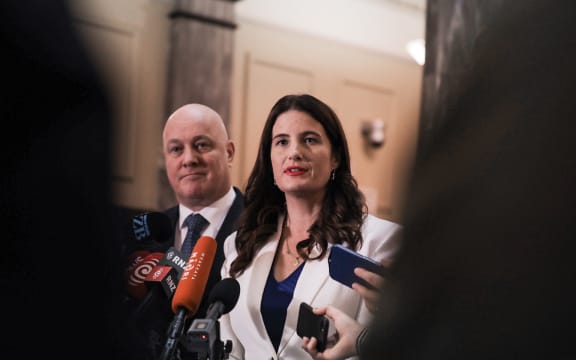
Nicola Willis told reporters she had details of Labour's tax policy. Photo: RNZ / Samuel Rillstone
Hipkins response was to neither confirm nor deny it.
"We haven't announced our tax policy yet … people can speculate all they like," he said.
Willis claimed it showed there were divisions in Labour's caucus, because Finance Minister Grant Robertson had previously said it would be difficult to remove GST from fruit and vegetables and in other countries it had been "an absolute boondoggle".
"Chris Hipkins is no longer taking his finance minister seriously," Willis said.
If it was a genuine leak, Labour will be worried and will be wondering what else Willis knows.
Stuff took it seriously enough to check out how much would be saved.
A shopper buying six of the most-purchased fruit and vegetables in Countdown in Auckland this week would save about $3 if there was no GST on those items, it reported. The cost went down from $25.35 to $21.96.
If Labour does campaign on it, the party will be going some way to line up with Te Pāti Māori's tax policy.
That was released on Thursday, and would remove GST from all food.
It would also create a $30,000 tax-free threshold, paid for by introducing new top tax brackets - 42 and 48 percent on income over $180,000 and $300,000 respectively.
National's campaign manager, Chris Bishop, said it would send a wrecking ball through the economy and gave "a terrifying glimpse into what a re-elected Labour government would look like".
That is not going to happen. Even if Labour was able to form a government with the Greens and Te Pāti Māori, Hipkins has ruled out a capital gains tax or a wealth tax under his watch.
The prime minister did get some time out this week from internal problems.
He first hosted Australian Prime Minister Anthony Albanese and then US Secretary of State Antony Blinken.
Albanese was here on his first official visit, marking the annual trans-Tasman leaders get-together.
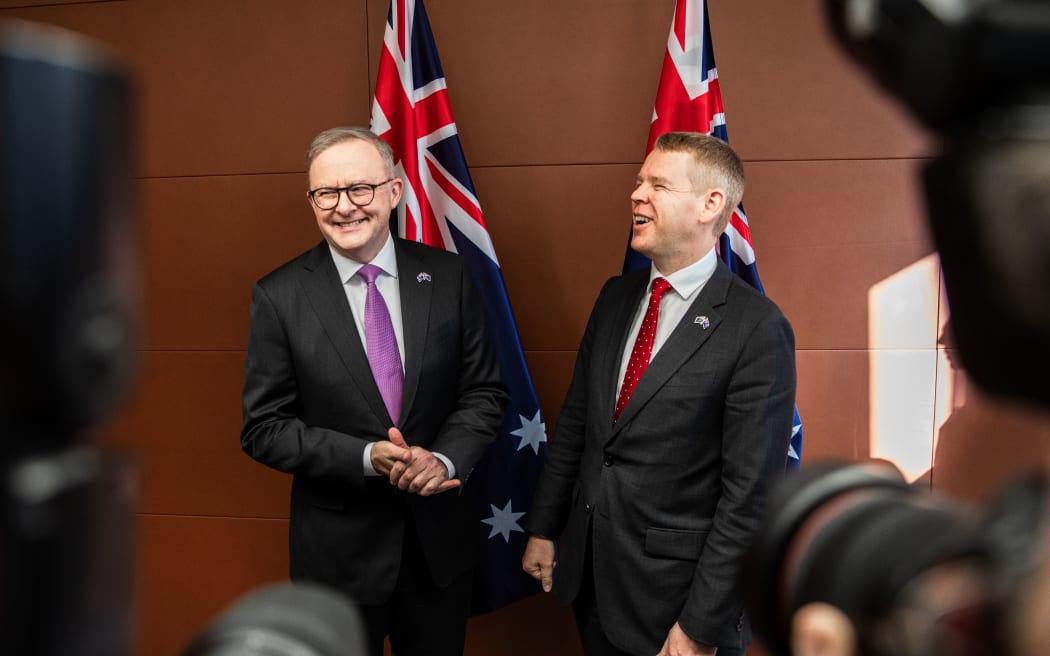
Australian Prime Minister Anthony Albanese and New Zealand Prime Minister Chris Hipkins. Photo: RNZ / Samuel Rillstone
As could be expected from two Labour prime ministers, it was all smiles and handshakes.
They agreed on a "bilateral roadmap setting out our shared ambition over the next decade", RNZ reported.
It would focus on sustainable, inclusive economies, on being active partners in the Pacific, championing international rules and ensuring people to people links would continue, Hipkins said.
They talked about "seamless" travel between Australia and New Zealand, and announced a taskforce would be working on that with a 12-month deadline to report.
Albanese said one thing they would be looking at was SmartGate technology, which would mean that "before you get on a plane in either country, it's already recognised that you are okay to come in".
Blinken met Hipkins and Foreign Minister Nanaia Mahuta, saying at a joint press conference afterwards that the door was "very much open" for New Zealand to join non-nuclear aspects of the AUKUS (Australia/UK/US) defence pact.
He said New Zealand was a trusted partner that could participate in aspects of the pact, which will provide Australia with nuclear-powered submarines in an apparent effort to compete with China's growing military strength, Stuff reported.
Mahuta said the offer was being considered but New Zealand was "not committed to anything at this point" and there was no timeline for cabinet decisions.
She said the government was exploring what participating in what is called the second pillar of AUKUS - the sharing of cutting edge military technologies - would look like.
"The confirmation appeared to settle months of uncertainty over the government's view of the defence pact," Stuff said.
"The pact conflicts with New Zealand's ban on nuclear power and weapons, and sparked concern across the Pacific that it could compromise a region-wide treaty banning nuclear weapons."
*Peter Wilson is a life member of Parliament's press gallery, 22 years as NZPA's political editor and seven as parliamentary bureau chief for NZ Newswire.

